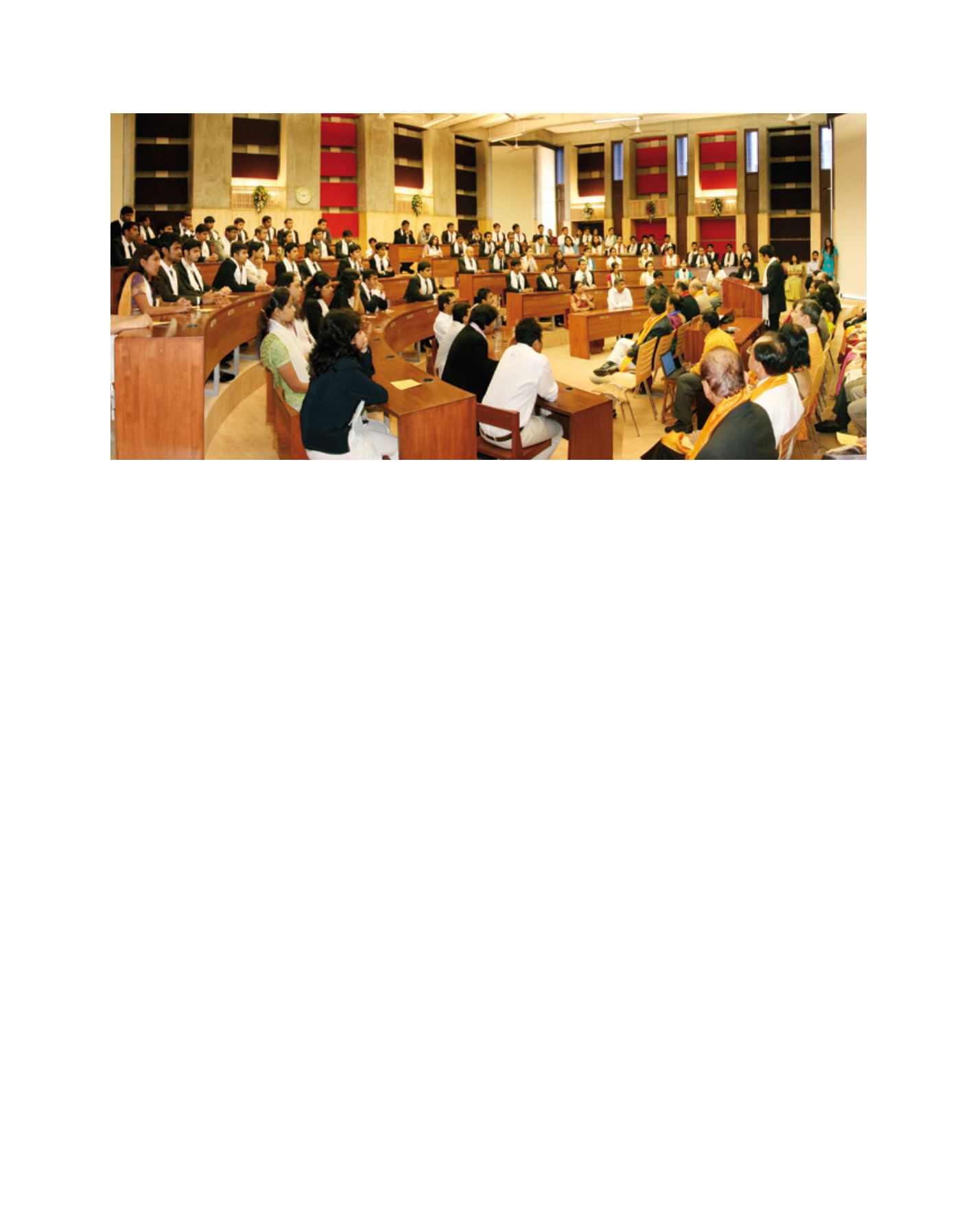

[
] 182
has been made possible by affording faculty flexibility in designing
their courses and encouraging a participatory pedagogy. In curricu-
lar terms, the plan of study has also been designed to account for
individual need through affording liberal choice. Over the first two
years of a student’s undergraduate career, they receive instruction
in rhetoric, logic and ethics and two courses in language. All other
subjects are divided across the five universes: humanities, social
sciences, sciences, fine and performing arts and global studies. To
ensure a fair representation across the spread of 80 courses in these
five universes, students make their own choices of subjects at basic
or intermediate levels (100 or 200) over their first two years, with
the structure guaranteeing exposure to at least three disciplines in
each universe. At the beginning of the third year, they elect their
major, and/or a minor. As with all majors, a minimum of 60 credits
(approximately 20 courses) is required for graduation, and through
each term, this translates to approximately five courses a trimester.
Even with constraints of size, from the FLAME School of Liberal
Education, subjects currently offered at major level include cultural
studies, economics, environmental studies, international studies,
literature, mathematics, physics, psychology and south Asian
studies, alongside traditional offerings in business and commu-
nication. The design of the programme focuses on foundational
depth and so stimulates interest in interdisciplinary majors such as
international and environmental studies. It is interesting that even
though India is the only country where the highest court of the land
has mandated the study of environmental education at all levels,
the possibility to pursue such interests is currently limited by lack
of capacity at the post-secondary school level. This should prompt
imminent reflection on the need for new majors, programmes of
study and interdisciplinary majors as an adequate response to the
dynamic nature of the creation and distribution of knowledge in
our time. As an introduction to the possibilities of research even at
undergraduate level, the Centre for South Asia at FLAME organizes
several talks, screenings and symposia to familiarize students with
the idea that the study of one’s own context can be embarked on in
innovative ways. Research opportunities, at every age, are certainly
critical to genuine learning. It is this insight of recogniz-
ing learning as a dynamic process that drives the need
for a return to liberal education in India.
Additionally, the recognition that learning occurs in varied
ways should also inform the crafting of new pedagogies to
maximize learning at all levels.While affluent students in the
rich learning environments of private schools are certainly
benefiting from pedagogical experimentation, at the college
level very little has been attempted in the arts and sciences.
At FLAME, the Discover India programme seeks to grant
experiential learning its due, by affording students tendays of
fieldwork and research, where they select their own research
sites and are responsible for producing original insights into
India’s heritage. So far, whether it’s the study of traditional
medicinal systems that have remained hidden from the
English mainstream, or ethnographic work on marginal
refugee communities, the value of the interactive aspects of
this education is significant. The output of this student-driven
research adds to generating models of sustainable and coop-
erative development.
If this model works at a typically collegiate scale of
under 400 students and 45 faculty, the FLAME experi-
ment can easily be replicated across India. It is vital that
more and more programmes be designed along these
lines for students in the Indian education system so as to
afford them a chance to discover their true passion for
meaningful and sustainable careers, while also adding
to the country’s human resources. Some 21 universities
existed in India’s professional training in 1947 and this
continued with post-independence India’s focus on engi-
neering, technology, management and medicine. Now
that the FLAME experiment in liberalizing Indian educa-
tion is seen to be working, attention can be focused on
the tougher question of how to achieve quality in educa-
tion and attain indigenous and sustainable models of
education.
FLAME offers as many as 80 courses to less than 160 students
Image: FLAME
















